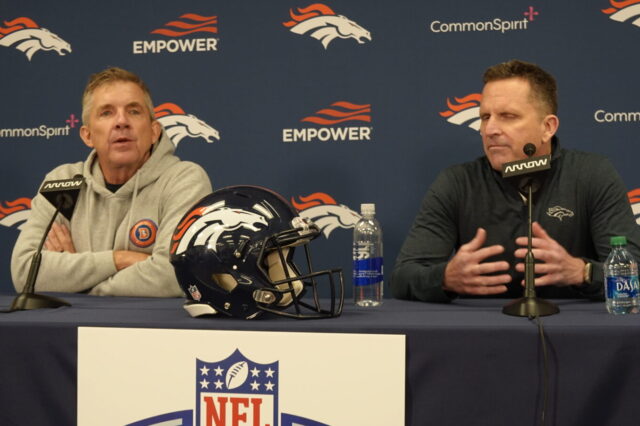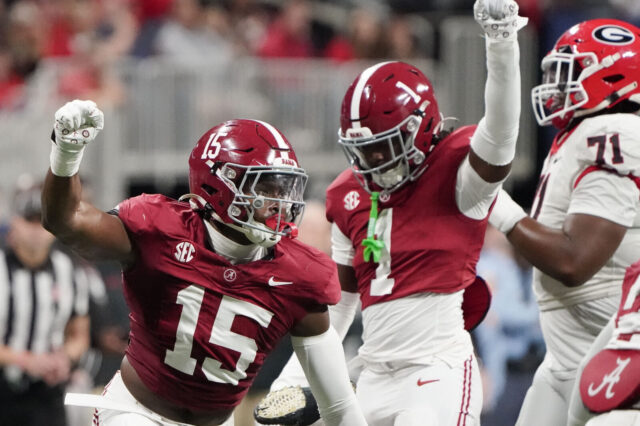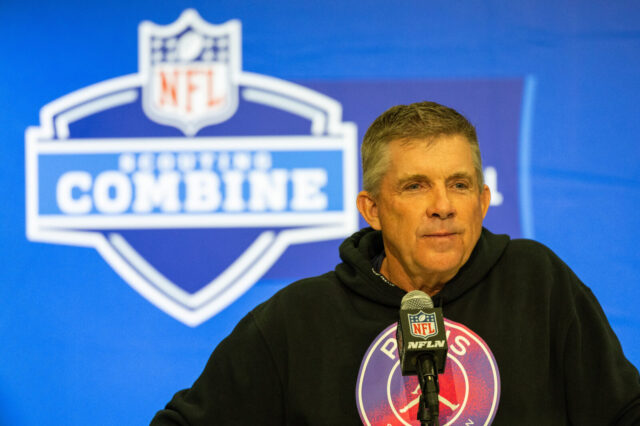As the July 15 deadline quickly approaches, the Denver Broncos and Von Miller have just over a week to agree on a long-term deal. While there are reports that Miller and the Broncos have communicated in recent days, the possibility that the two sides can’t find a middle ground still remains an option.
If this is the case, and no long-term deal can be reached between the two sides, this would put the Broncos in uncharted territory. Since general manager John Elway joined the Broncos in 2011, he has used the franchise tag a total of four times. In the three other times besides Miller — Matt Prater (2012), Ryan Clady (2013) and Demaryius Thomas (2015) — Elway has reached a long-term deal before the season started.
However, if history doesn’t repeat itself with Miller, it may be a very rocky road upcoming for the Broncos after Miller vowed that he would not play in 2016 under the franchise tag.
"I love my Teammates, Coaches, and My Fans" but there is "No Chance" I play the 2016 season… https://t.co/eJ2kr5xDSx
— Von Miller (@VonMiller) June 16, 2016
While there is a chance that Miller’s statement could just be a negotiating tactic, there is also a chance he holds out this season, forgoes the $14.1 million he would make under the franchise tag, wait until next year to become a free agent and then sign a deal with about $60 million guaranteed.
While no Broncos fan wants to see Miller on the sidelines this upcoming year, it would make a lot of sense for Miller, because it would put him in a situation to get a historically large contract next offseason.
If Miller were to do this, the Broncos could still place the franchise tag on him next year, except it would be the non-exclusive tag, meaning that Miller would be able to participate in free agency and negotiate a deal with another team in the open market.
The benefit for the Broncos in this situation is twofold: First, the Broncos would be able to match any offer from another team, and second, the Broncos would receive a first- and a third-round pick from the team that signs Miller in return.
The Broncos most likely wouldn’t be interested in matching an offer made to Miller because the relationship between the two sides would be all but over at that point, but the Broncos would be very interested in receiving the draft pick compensation.
This would be very rare since, typically, when a team loses a top free agent, that team gets nothing in return, except maybe a later-round compensatory pick. Not only would the Broncos receive a first and a third in return, but there is also a significant chance that the team that would sign Miller would not be a very good team, thus giving the Broncos high picks in both rounds.
Typically the highest-paid free agents sign with teams that did not make the playoffs, and this year was another example of just that: Malik Jackson (Jacksonville Jaguars), Bruce Irvin (Oakland Raiders), Olivier Vernon (New York Giants), Mario Williams (Miami Dolphins), Eric Weddle (Baltimore Ravens) and Kelechi Osemele (Oakland Raiders).
Of course there were a few exceptions, like Brock Osweiler to the Houston Texans and Josh Norman to the Washington Redskins, but for the most part, history has proved that top free agent contracts go to teams who are less successful.
Along with the draft-pick compensation, the Broncos would save around $20 million per year that they would otherwise be spending on Miller. This would equate to nearly 13 percent of the Broncos’ salary cap for 2016 and would allow the Broncos to use that money in many different ways. To put this in perspective, the Broncos would be able to afford Aqib Talib and Chris Harris or DeMarcus Ware, Derek Wolfe and T.J. Ward with a budget of about $20 million per season.
Not only would the Broncos be able to afford two to three Pro Bowl-caliber players for the price that they would pay Miller, they would also have two additional high draft picks to add to an already talented roster, which would help keep the organization relevant for years to come.
Over the next week, Elway and the Broncos will weigh how much Miller is worth to the organization while they try to negotiate a long-term contract. During this time, the Broncos will have to ask themselves whether they value Miller more than two high-round picks, along with two Pro Bowl caliber players. The answer to that question will decide whether Miller is a Bronco for the future, or if 2016 will be his last season in Denver.
While losing a player of Miller’s abilities is never ideal, saving around $20 million per season as well as receiving a first- and a third-round draft pick in return would make the loss more manageable as well as potentially help the team greatly in the long run.



